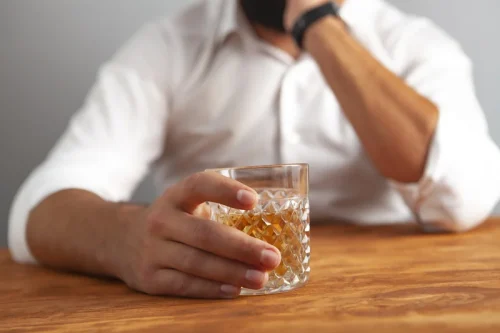Addiction Recovery: Seven Great Art Project Ideas

The goal of such art therapy techniques is to diagnose family relationships. Every time you are interested in an object, come up with a name and artistic symbol for it. Such paint therapy ideas transform images, supplement them with new details, destroy and create again. You can mold your fear out of salt dough and destroy it, decorate it, or transform it into something else.
Stress Reduction and Mindfulness
For people with mental health issues and SUD, art can be a critical component of a recovery toolkit. It can also help your mental health professional better understand you and help you navigate toward a brighter future. Another advantage of art therapy that often gets overlooked is the ability to form bonds with others in situations very similar to your own. Art brings people together, and whatever you choose to create will bring in new connections who can have whatever role you want them to in your recovery. These people aren’t here to judge but can help you interpret what you’ve expressed, share their own artistic works, and more. Rehabs that offer art therapy will often use it as part of a comprehensive treatment plan, rather than on its own.

Nicotine Addiction Treatments: Effective Strategies for Quitting Smoking

So let’s raise a (non-alcoholic) toast to the power of community, creativity, and good old-fashioned fun in the journey of recovery. After all, a life reclaimed from addiction should be one worth living – and enjoying – to the fullest. Creating personalized coping strategy toolkits is like assembling a superhero utility belt for recovery. Each person curates a collection of techniques and resources that work best for them. It’s empowering to know you’ve got a arsenal of strategies at your fingertips when challenges arise.
Group Therapy Activities Build a Sense of Community and Accountability
- Hearing others’ stories provides new perspectives, practical strategies, and inspiration, while also reinforcing your commitment to sobriety.
- Place the sculpture in paper space (the universe).
- It’s a playful way to practice being present in the moment – a crucial skill in managing cravings and stress.
- Shade in different areas and use different colors to enhance creativity.
Our recovery management and alumni programs support a life-long recovery. Your journey to recovery doesn’t end with day treatment or outpatient, once you’re with Blanchard, you’re always with Blanchard. Sometimes, emotions like grief, anger, guilt, shame, and hopelessness are too complex to put into words. People also often need time and space to process issues like trauma or abuse.
This is helpful on a survival level, but when clients get stuck in that mode, they can experience all kinds of issues and symptoms. While the Draw Your Wall activity can benefit treatment no matter what the issue, in my experience, the Draw Your Wall activity art therapy ideas for adults in recovery is especially useful for clients who have experienced trauma. As participants create their beads, they’ll be reminded of the meaning of mindfulness and how they can help them refocus their mind and practice mindfulness—and even some meditation.

Drawing and painting
- People under the influence of a chemical on a consistent basis will enact inappropriate responses to their environment and social situations.
- It is a journey that has the potential to enrich your life on multiple levels, from emotional healing to personal growth.
- This presence in art history is one of the characteristics contributing to the effectiveness of the box as a tool for art therapy” (p. 88).
- No matter the feelings, experiences, traumas, or mental state, you have the ability to express them through art.
SUD can feel debilitating and can be one of the most challenging situations you’ll ever navigate, but it doesn’t have to continue to negatively impact the rest of your life. Art, in its many forms, can make the experience of recovery more fulfilling and enjoyable. Whether you like to paint, write music, or doodle in your journal, art may be the tool you need to bolster your recovery journey. This process involves the client using a fluid medium, such as paint, to help illustrate feelings of being out of control or self-destructive.
Once we have an understanding of what is going on deep beneath the surface, we are able to use that to create true, lasting change within ourselves. Art therapy is used as a healing treatment for children who survived the trauma of war. The visuals that manifest are a way to convey the horrors they have witnessed. Patients gain more emotional comfort and learn how to assess their feelings. From there, awareness of their emotional reactions enables one to control them better and regulate them when they emerge.
- This exercise develops imagination, relieve emotional stress.
- Through the strokes of a brush, the words on a page, or the melodies of a song, creative recovery offers a unique and transformative path towards personal growth and emotional healing.
- Man and the planet of one’s treasures art therapy ideas.
Expressive Art Therapy for Addiction Recovery
Since creativity is stifled by addiction, it stands to reason that reviving creativity is frequently crucial to overcoming addiction. All these https://ecosoberhouse.com/ factors can help people stay motivated and committed to their recovery goals. Once they are finished, explore what they have created.

Addiction Destroys Dreams, We Can Help
In the subsequent section, we will explore how art enables individuals to transform their experiences, including pain and adversity, into meaningful and beautiful creations. People who cannot explain their thoughts or feelings to a therapist or group can benefit from addiction recovery art, which may help them break through and gradually begin to discover the words. Through addiction recovery art, psychological concerns like stress, anxiety, depression, or trauma can be brought to light, and the weight they put on our development can be lessened. Art therapy is a treatment for addiction where those recovering use creative art-making to express feelings and thoughts that are hard to put into words. This therapy allows them to explore and address issues related to their addiction.
Simple, structured activities like coloring or guided drawing exercises can provide a sense of calm and focus during this challenging time. These activities can also help individuals begin to identify and express their emotions in a safe, controlled manner. Creative expression provides a healthy outlet for emotions and stress for people in recovery from substance abuse. By engaging in activities such as art, music, or writing, you get to explore and articulate your feelings, which can be cathartic and therapeutic.
.svg)



.svg)